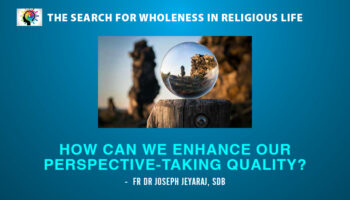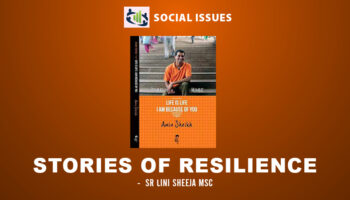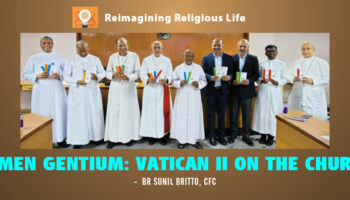Here is a short summary of the Document published by the Vatican in March 2020, on an unusual theme—water!
Water is the source of life. Our survival and health depend directly on water. So does the production of food, energy and many consumer goods. Not all the planets are blessed with this precious gift, an indispensable element for life as our planet Earth. Therefore, we (human beings) should be more aware of its multifaceted value.
The latest church document, Aqua Fons Vitae, spells out four values of water:
- A religious value: In many religions, water has been and is still perceived as holy and connected to divinities and their benevolence. In liturgical and devotional gestures, water indicates a transcendent value – water cleanses from sins and gives a new birth of innocence by water and the Holy Spirit at Baptism. Water cleanses, heals, quenches, purifies, and so on.
- A socio-cultural and aesthetic value: Water is an essential part of human daily life – its cultural dimension is involved with human customs, navigation, farming, fishing and cultural exchanges between civilisations. It inspires literature, music and artistic expressions. Water is also symbolic in various social functions and celebrations.
- An institutional value and a value for peace: Water has a vital link with our social life through all generations. Hence, as a connector, it has institutional value and a value for peace. It is an element that drives the creation of bridges, collaborations and dialogue. Therefore, much peace would be gained if countries could collaborate to resolve water conflicts in the world.
- An economic value: Unfortunately, in many cases access to safe drinking water and for other purposes as well has a cost. This is a powerful message to all of us to consider how much we lose by not respecting nature and by not taking into account even the smallest negative impact we make on the environment. We should also appreciate the fact that adequate access to water brings about a happy and meaningful life.
Commitments to be taken:
The document further distinguishes the three dimensions of water: (i) water for human use; (ii) water as a resource used in many human activities, especially farming, crafts and industry’ (iii) water as a space: rivers, underground aquifers, lakes and above all seas and oceans.
The document looks at each of these dimensions. The challenges are analysed and suggestions for concrete commitments towards sustainability of water are made. The Church gives particular emphasis at the local level (in all parishes, monasteries, schools, canteens, oratories and health centres) to the following:
- Guarantee access to drinking water and sanitation.
- Abandon the use disposable plastic bottles.
- Create public water access points where possible and in particularly needy areas.
- Avoid food waste (food has been produced using water…).
- Motivate citizens to find justice in case access to drinking water is violated.
- Encourage and urge participation in water management policies.
- Adopt effective and environmentally friendly water systems.
- Celebrate and give greater visibility to anniversaries connected to seas and oceans.
- Avoid disposable plastic objects, wherever possible, in our facilities and activities.
- Contribute as much as possible, to the cleaning of beaches or river banks, involving groups of young people, families, religious people and scouts.
- Facilitate the outdoors, hands-on studying of ocean/river issues and participation in coastal restoration projects in Catholic schools at all levels.
- Avoid and reduce pollution from riparian and coastal parishes, schools, canteens, and health centres.
Education for a New Humanism
Furthermore, the Church continues to give strong emphasis on education for a new humanism and for a culture of encounter and collaboration about water. We must educate ourselves and others:
- In gratitude for God’s loving gift – the world where we live in
- In ecological education and habits – restoring harmony with God, with others, with nature and within ourselves
- In the contemplation of all forms of water, avoiding a merely utilitarian mindset
- In living a lifestyle of moderation that makes us care for the others
- In a culture of encounter and relationship
- In compassion and solidarity
Summing up, an education rooted in values is a strong remedy against water-related corruption. We are called upon to reflect and act conscientiously towards ensuring a safe environment and universal sustainable access to water, for the future of life, the planet and the human community.
Summary by Sr Theresa Phawa FMA
To subscribe to the magazine, click Subscribe





